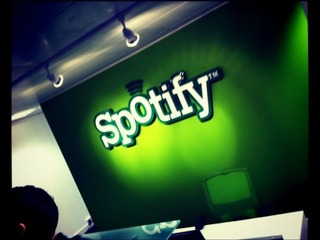Global AI in healthcare market expected to rise to $164B by 2030
The market size for 2023 was $10.31 billion
Read more...
Editor's note: Our Splash Health, Wellness and Wearables event is coming up on March 23 in San Francisco. We'll have Mario Schlosser, Founder & CEO of Oscar Health, Brian Singerman (Partner, Founders Fund), Steve Jurvetson (Draper Fisher Jurvetson), J. Craig Venter (Human Longevity), Lynne Chou (Partner, Kleiner Perkins), Michael Dixon (Sequoia Capital), Patrick Chung (Xfund), Check out the full lineup and register for tickets before they jump! If you want to invest as little as $2500 in our startup winners. Join the Vator Investment Club (VIC).
The success of Shazam is kind of an amazing, if you think about. The company turned a really simple question, "who does this song?" and turned it into a business that is worth over $1 billion as of its last fundraising. It's also pretty remarkable that no other company has been able to challenge it, not in a serious way. That is, perhaps until now.
On Tuesday, Spotify announced that it has made its first acquisition of 2017, buying Sonalytic, a London-based audio detection company. No financial terms of the deal were disclosed.
Sonalytic's technology allows its users to identify individual songs, mixed content and audio clips that can be as short a one second in length. It can even locate musical stems within derivative musical works, meaning it can figure out if someone has used a piece of someone else's music within their own track.
The owners of the material that is being identified can also use the service to monitor its usage, and the engagement of their releases, using Sonalytic's big-data analytics platform. Sonalytic also has a discovery feature, in which it uses machine-learning algorithms to learn what its users like and dislike.
For the moment, Spotify seems most interested in using this technology to enhance its own recommendations service, using Sonalytic's identification capabilities to better understand what Spotify users would like to hear next.
"The Sonalytic team is passionate about creating technology to improve the music ecosystem for artists and fans," Spotify wrote in a short blog post. "Their advancements in audio feature detection will be used in several ways to advance Spotify’s mission: from improving Spotify’s personalized playlists to matching songs with compositions to improve our publishing data system."
A Shazam competitor?
In addition to incorporating Sonalytic into its existing features, Spotify also promised to deliver new products "with Sonalytic’s help." While the company doesn't specifically say what those might be, it would be fascinating if the company were to launch its own Shazam competitor through the use of Sonalytic's technology.
Spotify could be the biggest challenge yet to Shazam's supremacy over the audio detection space. Spotify recently announced that it reached 50 million paying users, while it has over 100 million total users, as of June 2016. Shazam, meanwhile, hasn't released updated user numbers in quite a long time; it had more than 120 million monthly active users as of mid-2015, and it can be assumed that the number has grown since then.
Shazam does say its app has been downloaded over 1 billion times, is used in over 190 countries and that its users Shazam over 20 million times each day.
Even though Shazam has more users than Spotify, if the company did create a competing app, it would still allow Spotify to expand its offerings, and to expand to potential revenue streams, as it prepares for a highly anticipated initial public offering.
Currently, Spotify makes its money mostly from paid subscriptions, as well as advertising from it's free tier. While Shazam also makes money from advertising, it also makes money through brand partnerships, where, for example, it can send coupons to user's phones if they identify songs in a specific store. If Spotify were to launch a music discovery app, that is one potential it too could bring in revenue.
Founded in 2016, Sonalytic had not raise any venture capital; according to the company's Crunchbase profile, it raised an undisclosed amount of non equity assistance from Imperial Create Lab.
VatorNews has reached out to Spotify for more information on its future plans. We will update this story if we learn more.
(Image source: sonalytic.com)
The market size for 2023 was $10.31 billion
Read more...At Culture, Religion & Tech, take II in Miami on October 29, 2024
Read more...The company will use the funding to broaden the scope of its AI, including new administrative tasks
Read more...

